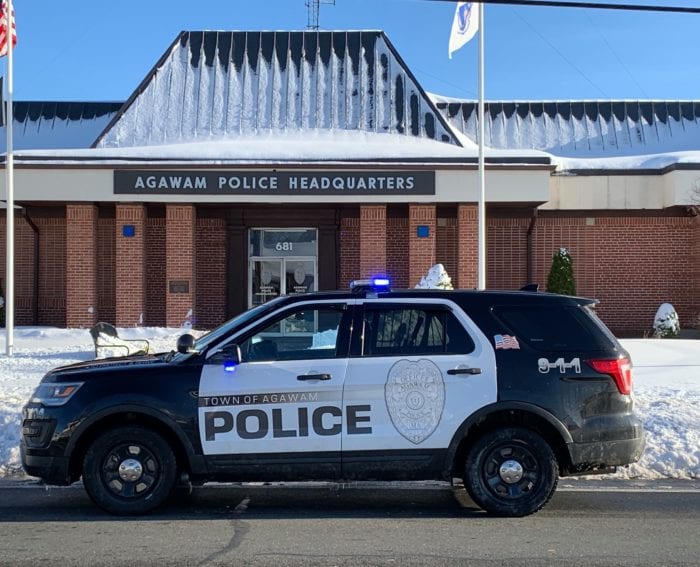
BY MAYA SHAFFER AND JAMIE TRUMAN OF CRIT NEWS
Agawam is hardly alone in its delinquency, but it’s a case worth noting, since such actions are clear violations of the records law, which mandates that requests should be responded to within 10 business days.
Steve Buoniconti, one of two records access officers in the Western Mass town of Agawam, is adamant that he is not in fact an RAO.
Even if he is an RAO, he gets way too many emails, so he ignores communications from reporters like us.
As we have written many times, this is not a new phenomenon. It’s just another day in the ongoing Massachusetts public records access crisis in which requests can easily take a year or more to resolve and can end unresolved when the state simply fails to enforce the law.
We are currently working with the Boston Institute for Nonprofit Journalism and DigBoston to send requests to every police department in the state for information about their social media use. In many places, we’ve had problems reaching RAOs; the Cambridge Police Department, for example, did not list an RAO on its website but after our prodding have put their city clerk’s information on the site, and a media relations person there failed to provide us with the name of a dedicated officer, as is required by law.
The routine failures of police departments to post this information or respond to requests has prompted us to make multiple appeals to the secretary of the Commonwealth’s office, which oversees the records access law. Specifically, we are seeking the state’s aid in getting the records we’re seeking.
Agawam is not alone in its delinquency, but it’s a case study worth noting. The town initially landed in the category of just not responding to a request, so we filed an appeal. To which Buoniconti responded: “I am not the records officer for the Town of Agawam. I did not notice the email on January 13,2020. There are links on our website that direct public records request [sic] to the attention of the public records officer.”
The website for the town, however, lists Buoniconti as one of two RAOs. But one thing has changed since we made our request: While Buoniconti’s name used to click through to his email address, since our appeal, the link is removed.
As we have noted, such actions are clear violations of the records law requirement that “each agency and municipality shall post in a conspicuous location at its offices and on its website, if any, the name, title, business address, a telephone number, and business email address of each records access officer.”
We responded to Buoniconti, explaining that the website lists him as an RAO. In turn, he provided a second explanation for ignoring the public records law: “I receive many emails a day as solicitor and often do not access emails that appear to be phishing sites. With no personal names Like yours at critical Ma.”
Our email’s subject: “Public Records Request.” The signature: Jamie’s full name.
According to the secretary of the Commonwealth’s website, “Anyone may request records directly from RAO. The Law does not require any specific format for making a public records request.” As we see it, Buoniconti and Agawam are not allowed to ignore requests because they don’t like the format of our email address.
Unsurprisingly, the request we made for something that should take about 10 minutes to provide was ignored. What should have taken a single emailed request to resolve took almost two months, several emails, and an appeal, and when we were finally given a response it wasn’t even correct. Agawam first claimed that there were no responsive records… but then 10 minutes later had to say, oops, there in fact are records after all. This drawn-out process filled with hostility and incompetence on the part of Agawam is in clear violation of the records law, which mandates that requests should be responded to within 10 business days and without delay. Galvin’s office, which oversees the law and ought to be ordering, retraining, and trying to bring delinquent RAOs in line with the law, instead closed our appeal without finding based on the eventual response with no consequence for the law breaking Agawam RAO.
This article was written in collaboration with the Boston Institute for Nonprofit Journalism.
Maya is the editor of Critical Mass, which produces investigative reports primarily on issues of transparency and accountability in government in Massachusetts.

